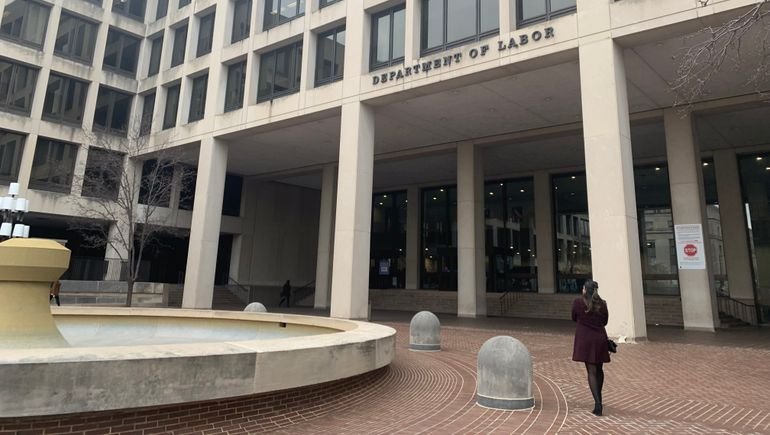Dive Brief:
- A Pennsylvania swimming pool subcontractor will pay $317,097 in back wages to three U.S. workers and 56 workers from Mexico employed under the federal H-2B guest worker visa program, the U.S. Department of Labor announced April 17. The payments will be made pursuant to a consent order resolving charges that the subcontractor violated the program.
- Following an investigation, DOL’s Wage and Hour Division determined that GSI Pool Finishes paid the workers, hired as cement masons, at a piece rate less than the required wage rate that was offered, according to the DOL. The incorrect rate resulted in the workers being owed $266,627 in back wages, the agency said. GSI Pool Finishes also allegedly failed to conduct drug tests and criminal background checks as advertised; failed to provide inbound, outbound and daily subsistence to workers for their travel to and from the worksite; and failed to properly recruit U.S. workers, among other violations, according to DOL.
- GSI Pool Finishes contested the findings, specifically how the WHD calculated back wages. An administrative law judge found inconsistencies in the evidence and scheduled a hearing, but prior to the hearing, the parties agreed on certain findings. The judge approved the findings and issued the consent order, which requires the company to pay $67,649 in civil penalties in addition to the back pay. The back wages include $50,470 in travel expenses, the DOL said. GSI Pool Finishes did not respond to a request for a comment by press time.
Dive Insight:
Under the H-2B program, established by the Immigration and Nationality Act, employers can hire nonimmigrants on a temporary basis to perform nonagricultural work in the U.S., according to a DOL guidance. That is, the employment must be for a limited time, such as a one-time occurrence, or to meet a seasonal, peak-load or intermittent need.
Participating employers must abide by requirements intended to protect both foreign and U.S. workers. For example, employers have to pay H-2B workers and U.S. workers employed in corresponding jobs no less than the wage rate specified in the job order. This rate must be at least the highest of the prevailing wage rate obtained by the DOL’s Employment and Training Administration or the applicable minimum wage under federal, state or local law, a DOL fact sheet explains.
If workers are paid on a piece rate, commission, bonus or other incentive, the employer must guarantee wages that equal or exceed the offered rate, the fact sheet says.
Also, before hiring H-2B workers, employers must test the labor market for U.S. workers and recruit, consider and hire qualified and available U.S. applicants, according to the DOL’s April 2022 field enforcement handbook.
The H-2B program is not without controversy. The Economic Policy Institute, a worker advocacy research group, has argued that the program exploits migrant workers and U.S. citizens who work alongside them.
As support, EPI published a report in August 2022 finding that the seven industries employing the majority of H-2B visa holders — amusement, construction, food services, forestry, hotels and motels, janitorial services and landscaping services — accounted for nearly $1.8 billion in wage and hour violations between fiscal years 2000 and 2021. EPI said its data represented violations and back wages owed to more than 1.6 million employees, including U.S. citizens, lawful permanent residents, H-2B workers and workers of other immigration status.
However, business advocates, such as the H-2B Workforce Coalition, have been vocal about the need for seasonal employees.
The current cap on H-2B visas is at 66,000 per fiscal year, with 33,000 workers for each half of the year (Oct. 1–Mar. 31 and April 1–Sept. 3). But these caps are reached quickly, as are the caps on supplemental visas routinely allotted. For example, on Mar. 31, the U.S. Citizenship and Immigration Service announced that it had received enough petitions to reach the cap for the additional 16,500 H-2B visas made available to returning workers for the early half of FY 2023.
There have been calls for change. In a May 2022 letter to Sen. Jon Ossoff, D-Ga., U.S. Secretary of Homeland Security Alejandro Mayorkas confirmed that the federal government would undergo rulemaking to reform the H-2B and the H-2A (agricultural workers) visa programs.
Meanwhile, a January proposal by the Department of Homeland Security to raise the application fee from $460 to $1,080 (for named H-2A visa petitions) and $1,090 (named H-2B petitions) has been met with opposition.
In a March letter to Mayorkas and U.S. Citizenship and Immigration Services Director Ur Jaddou, a group of bipartisan senators expressed concern that the proposed increase “will be particularly burdensome for small businesses relying on H-2A and H-2B nonimmigrant visas to meet their workforce needs.” Given the persistent labor shortages in their industries, the proposal may prevent them from operating at full capacity and result in higher prices, a decline in services or products and exacerbate inflation, the senators wrote.


